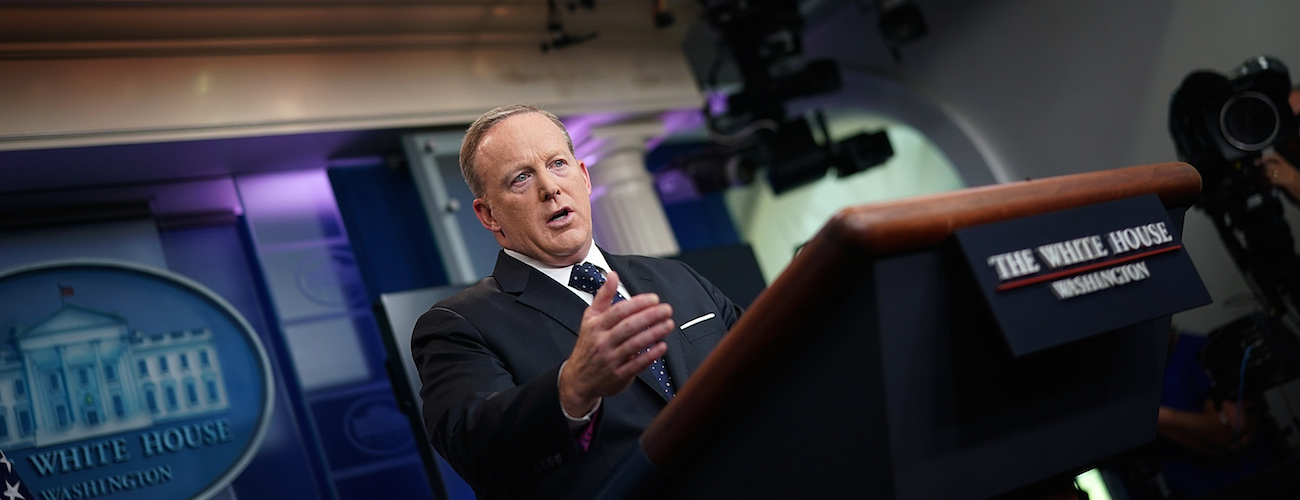Sean Spicer, who came to office a respected, if combative, Washington insider, resigned on Friday as White House press secretary, leaving office with a damaged reputation after completing an ignoble six months in the office. Spicer, as first reported by The New York Times, chose to resign rather than serve under new White House communications chief Anthony Scaramucci.
Coming to the job with years of experience in the Capitol and solid relationships with many members of the press, Spicer quickly demonstrated a willingness to serve as President Trump’s attack dog, castigating reporters over coverage of the inauguration and demonstrating a tenuous relationship with reality that would continue in later months.
The demands of the job, along with criticism from both from the press and the president, along with a mocking Saturday Night Live imitation, seemed to wear on Spicer as spring progressed. By May, Deputy Press Secretary Sarah Huckabee Sanders was taking more turns behind the Brady Briefing Room lectern, as rumors swirled over Spicer’s outster.
RELATED: White House journalists’ most meme-able moments
Perhaps in an effort to avoid that outcome, Spicer doubled down on criticism of reporters. Instead of working to bridge the divide between a often-incredulous press corps and an administration that referred to the media as “the enemy of the American people,” Spicer chose to parrot his boss’s most strident and disingenuous criticisms, attacking the press for fake news and complaining about a biased agenda.
He also dealt with problems of his own making, including a condescending confrontation with American Urban Radio Networks’ April Ryan and a comparison between Bashar al-Assad and Adolph Hitler that necessitated a rare apology.
RELATED: We analyzed two weeks of Spicer press briefings. Here’s what we learned.
Former Clinton Press Secretary Mike McCurry told the White House Historical Society that “The press office has to be an advocate for the press and the public’s right to know inside the White House. Sometimes you will lose out to other priorities, but at least the press will sense that someone is looking out for its interests…The modern presidency cannot work effectively if it is constantly at war with the media.” Spicer never served as that advocate. He chose self-preservation and professional expediency over any sense of duty, and still ended up serving the shortest term of any press secretary since Jake Siewert took over in the final days of the Clinton administration.
The temptation is to view Spicer as a tragic, beleaguered figure, placed in an untenable position by a boss who demanded absolute loyalty. Don’t do it. Spicer proved on his first full day in office that he had no qualms about defending an ultimately meaningless falsehood. For six months, he presided over a communications team that actively undermined the work of the press. That Scaramucci’s hiring would be the one red line he couldn’t cross speaks not to any sense of ethics or professionalism, but to the limitations of a man who had the opportunity to serve as a moderating force on the administration’s subversive attacks on the press, and failed.
ICYMI: Two dozen freelance journalists told CJR the best outlets to pitch
Pete Vernon is a former CJR staff writer. Follow him on Twitter @ByPeteVernon.

